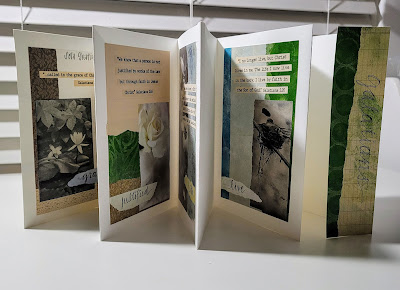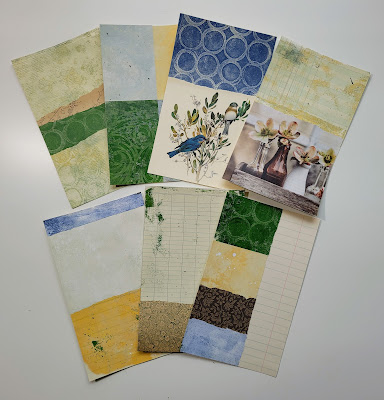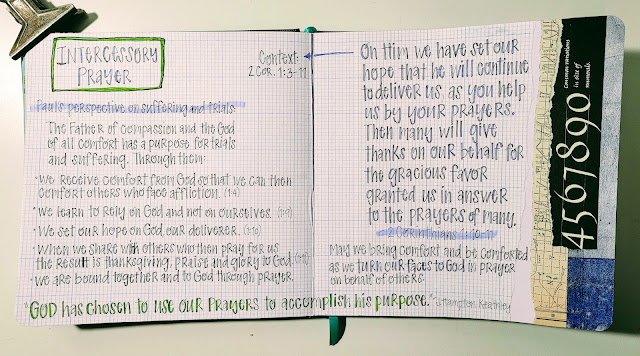Word 1: Promise
“Now faith is being sure of what we hope for and certain of what we do not see.” Hebrews 11:1
Hope is the first theme of the Advent season. Yet it is also
a thread that we find woven throughout the whole of Advent because hope is at
the very core of our faith. Advent is a season of looking back and looking
forward. The cast of characters that will guide us through this Advent season
provide us with examples of people who lived in hope of God’s promises
fulfilled. Through the longing and waiting, through times of trials and
suffering, and even times of peace, it is hope that provides the lifeline
needed for God’s people to endure. What we hope for is certain because we
believe in the God of hope (Romans 5:13) whose promises rest on His grace,
mercy, love, and faithfulness. As we look back at the prophets and the people
of God who lived in hope, depending on the faithfulness of God to provide the
promised Messiah, we are encouraged in our own hope to look forward to the promised Savior and
King who will return in glory.
“Blessed be
the God and Father of our Lord Jesus Christ! According to his great
mercy, he has caused us to be born again to a living hope through the
resurrection of Jesus Christ from the dead, to an inheritance that is imperishable,
undefiled, and unfading, kept in heaven for you, who by God's power are being guarded through faith for a
salvation ready to be revealed in the last time.” 1 Peter 1:3-5
Hope always looks forward but rests on what is behind, on seeing the promises of God fulfilled in our own life and in the lives of others. As we look back on the characters of the Advent season, may our hope be renewed and refreshed to live in this present time confident in the living hope we have in Jesus Christ and certain of the lasting hope we have in Christ’s return when His glory will be complete in our lives.
King David
Our church
recently finished a year of going through the book of Deuteronomy. One of the
things that continually comes up in this book is the faithfulness of God in
keeping His promises.
“Know therefore that the Lord your
God is God; he is the faithful God, keeping his covenant of
love to a thousand generations of those who love him and keep his
commandments.” Deuteronomy 7:9
Throughout the book God’s people
are continually called to remember what God has brough them through, just as He
promised He would do. Our God is a covenant making, covenant keeping God. One
of the covenants, or promises, that God made was to David. If you remember the
story, David was a simple shepherd who God chose to be king of His people
because David was “a man after God’s own heart” (1 Samuel 13:14). Despite the
many ways David sinned – adultery, murder, etc. – David was faithful in loving
and following God, as we see throughout the Psalms where his repentant heart
continually cries out for God’s mercy and love. David would be known as a
righteous and loving King, and a strong ruler who protected the people.
God’s love for David is seen in the
many promises He made to him. They are detailed in 2 Samuel 7:8-16. Verse 16
summarizes God’s covenant with David, “Your house and your kingdom will
endure forever before me; your throne will be established forever.” The
promise God made to David, that His kingdom would be established forever, was a
promise to God’s people for a righteous king to lead them forever. This promis, known as the Davidic
Covenant, would become the hope that God’s people held onto for the coming
Messiah – the One who saves.
The later prophets Isaiah and Jeremiah
would point to God’s salvation through David’s line in the coming of the
promised Messiah.
“‘The days are
coming,’ declares the Lord, ‘when I will fulfill the good promise I made to the people
of Israel and Judah.
Jeremiah 33:14-16
In Jeremiah’s words, we see the
promise of God, made to a people in exile that a day is still coming when He
will fulfill this promise. A “righteous
Branch” will “sprout from David’s line – from his descendants, and this king,
the Messiah, will save His people. This gave a people longing and waiting for
deliverance, hope.
And
so, centuries later, Matthew's gospel begins with hope fulfilled, "the genealogy of Jesus
Christ the son of David...". We then see how Jesus is descended from
David’s line in Matthew 1:1-17. We see the fulfillment of this prophecy
repeated throughout the Christmas story found in Luke's gospel:
The
angel said to Mary:
“You will
conceive and give birth to a son, and you are to call him Jesus. He will be great and will be called the Son of the Most
High. The Lord God will give him the throne of his father David, and he will reign over Jacob’s descendants forever; his
kingdom will never end.” Luke 1:31-33
From Zechariah’s
Song:
“He has raised up a horn of salvation for us
in the
house of his servant David
(as he said through his holy
prophets of long ago),
salvation from our enemies
and from
the hand of all who hate us—“ Luke 1:69-71
The angel to the
shepherds:
“Today in the town of David a Savior has been born to
you; he is the Messiah, the Lord.” Luke 2:11
Jesus Christ came as the fulfillment of the promises God gave to David, the prophets, and the people. He is the promised One who will do what is just and right. He is the LORD our righteousness!
I think my Advent journals are some of my favorite art journals.
This year I made a simple signature journal using a heavy weight drawing paper.
Share how you respond to today's word in the Words Facebook Group or on Instagram using #adventwords2022.






















































